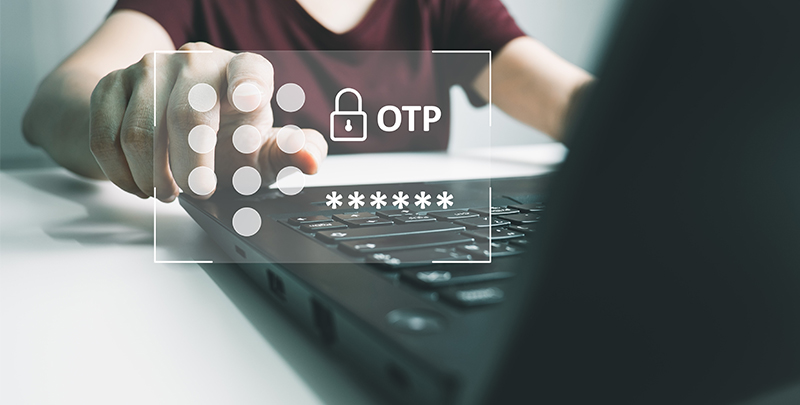Credit cards offer the convenience of borrowing money within set limits. However, there is always a threat of fraud, which could lead to losses. Therefore, you should use them with caution. One-Time Passwords provide an additional layer of security
that can deter such frauds.
Suppose you use Axis Bank's Privilege Easy Credit Card for online shopping.
Once you have added all your items to your cart, you need to fill in the card details. Next, you receive a notification on your phone. It is a message with an OTP (One-Time Password). Only after you enter the OTP, is money debited from your
credit card.
OTPs are used to authenticate your purchase and ensure that the cardholder is the one using the card. This enhances security while using the credit card. In this day and age of speed and technology, security cannot be ignored. Hence credit card transactions come with an additional layer of security - OTPs.
Even if a hacker manages to get hold of your credit card details, such as name, date of birth, date of expiration, etc, the OTP is available only on the user's i.e. your, registered email ID and mobile number. This ensures secure credit card transactions.
What is an OTP?
An OTP is generally a four-to-six-digit number that is randomly generated by the bank to authenticate a transaction. It is a temporary password, usually valid for a few minutes from the time it is generated.
There are limited requests for generating OTPs for a transaction (usually 3). Money is deducted from a credit card only when you enter the correct OTP on the merchant's website.
How does an OTP work?
Let us understand the step-by-step procedure followed for OTP authentication if you are an Axis Bank credit card user:
- When you input credit card details on the merchant's website, the details are sent to the merchant's banker for approval.
- The merchant's bank forwards the details to card networks like Visa and MasterCard.
- The card network contacts Axis Bank. Axis Bank validates the credit card number, expiry date and CVV. It checks the balance of the credit card limit.
- The OTP is sent to the user's mobile number and email address.
- Once it is validated, the information is sent to the merchant's bank and your transaction is complete.
- In simple words, it means that Axis Bank is sure that you are the rightful holder of the card and approves the transaction.
In case the OTP does not match, the transaction is declined. If you receive an OTP that was not triggered by you, you can immediately get the card blocked and avoid becoming a victim of fraud.
[Also Read: The Perfect Credit Card for the Traveller in You]
What are the benefits of credit card OTP?
- Prevents Fraud
For a thief or hacker, just knowing credit card details will not suffice. They must have the registered mobile number or email id. This will act as a deterrent to fraud or at least make it much more difficult
to commit fraud.
- Enhanced security and control
Since the credit card is yours and so are the dues, having a sense of security and control enables you to limit usage. Anyone using it will have to ask you for the OTP and hence nothing can
get past you.
- Hassle-free
There is no need to remember multiple passwords, just input the number received on your phone and the transaction is processed. Axis Bank also offers an option for pre-generated OTP that can be generated before
the transaction to make the process seamless. This can be generated by sending a message to the bank. SMS PREOTP XXXX (last 4 digits of the credit card number) to 5676798. It is valid for 30 minutes.
You can know more about Axis Bank credit cards and make your credit card bill payments online.
Disclaimer: This article is for information purposes only. The views expressed in this article are personal and do not necessarily constitute the views of Axis Bank Ltd. and its employees. Axis Bank Ltd. and/or the author shall not be responsible for any direct / indirect loss or liability incurred by the reader for taking any financial decisions based on the contents and information. Please consult your financial advisor before making any financial decision.







